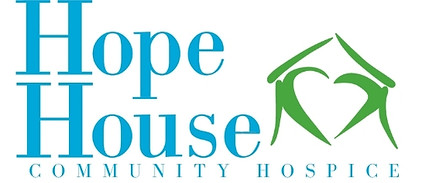Wellness, Grief & Caregiver Hub
Introduction to Core Concepts in Palliative Care
This 33-hour program is a requirement for all hospice client care. It offers an excellent overview of some of the specific needs associated with providing hospice care for the person facing illness and their caregivers. The training is facilitated by PalCare Network and is offered throughout the year. HHCH will register you and cover the cost for the training.
OUTLINE:
-
Introduction to Hospice Palliative Care-an introductory overview of Hospice / Palliative Care - origins, current trends in care delivery, purpose, philosophy, and principles of HPC. An introduction to the community hospice / palliative care team - various agencies, which are generally involved in the care of those facing a life-limiting illness. Explore the individual differences in values, attitudes and beliefs surrounding death, working in a diverse community. The value and worth of Volunteer and PSW as a member of the team. Understanding loss.
-
Communication and Listening Skills-exploring the different styles of communicating including active listening skills-to discuss barriers and boundaries of effective communication and provide an understanding of the importance of effective communication and collaboration amongst the dying person, their family, caregivers, and care team-culturally sensitive communication-confidentiality and privacy- the value and importance of Volunteers and PSWs as members of the palliative team-open discussions
-
Cultural and Ethical Issues in Palliative Care -to explore the patient’s beliefs, values and perceptions that are influenced by culture-to gain an understanding of the role of the caregiver in providing care that is sensitive and respectful to a person’s cultural background.-to discuss the customs, beliefs and rituals which may impact on the patient, family and caregivers-to define what is meant by ethics and ethical dilemmas as compared to what is considered moral, good and/or legal.-to explore how our beliefs, values and cultural background influence the way we make decisions.-to consider specific cases where end-of-life decisions are made
-
Pain and Symptom Management with Overview of Diseases in Palliative Care-to explore the total pain experience of the patient/client living with a terminal illness-to recognize unacceptable pain and reporting responsibilities-the impact of living with a life threatening illness-as death approaches, what to expect, what one can do to make someone more comfortable (medical and non-medical), becoming aware of the physical changes when dealing with the dying-cultural considerations around pain and symptom management- the value and worth of Volunteer and PSW as a member of the team-a general overview of the most common diseases in palliative care and how they present-assist caregivers in recognizing the impact of the disease beyond physical pain
-
Personal Perspectives in Palliative Care-to show the importance of Hospice care from the perspective of one who has had the benefit of hospice support as told from the presenters 1st hand personal experience of experiencing loss-to hear the challenges, experiences and rewards of helping the dying from a volunteer’s perspective-an opportunity for participants to interact directly with people ‘who have been there’
-
Spiritual Issues in Palliative Care-to explore the emotional responses of individuals, families and their significant others to terminal illness-to discuss the coping strategies of the dying person, the family, caregivers, the influencing factors such as culture, age and religious beliefs-to recognize areas of personal concern, personal attitudes toward death and one's own feelings about dying and death, life review, and legacy work with patients/clients-to explore spiritual aspects of care and the role of the caregiver in spirituality-your role as a member of the team
-
Grief and Bereavement-to gain an understanding of the grieving process prior to and following death, incorporating culturally sensitive support for individuals-the social impact of death and discuss the factors that influence the grief reaction-to explore the challenges of anticipatory grief-to discuss the factors that can influence the grief reaction-to explore ways of providing support to the person(s) experiencing loss and grief prior to and following death-the value and worth of Volunteer and PSW as a member of the team-the importance of rituals, meaning, closure, memory of a life lived-sharing concerns
-
Complementary Therapies and Care for the Caregiver-to gain an understanding of the sources of and the factors contributing to stress as well as signs and symptoms of burnout-to explore ways of coping with the unique stress associated in providing care to dying patients/clients and their families-to learn about and experience the benefits of and relaxation through complementary therapies-examining ways of supporting your client-provide an overview of common complementary therapies and their origins
-
Infection Control/Delegated Acts-to discuss infectious diseases that may be encountered in a clients home and how this may impact on how care is provided for the patient/client-to instruct participants in universal precautions ie: proper hand washing-demonstrate proper procedure for putting on/removing gloves-personal hygiene for patients/clients, mouth and skin care-to learn what are Delegated Acts under the Health Regulations Act of the Ministry of Health- explore the liabilities, responsibilities and boundaries of Volunteers and PSWs around Delegated Acts (NOTE: Boundaries may vary greatly from one organization to another. Participants are urged to seek direction from their individual organization)-responsibilities and reporting
-
Family Dynamics and Recap of Program-to explore the definition of family-to identify the different roles within the family-to explore the effect of terminal illness emotionally and psychologically on family coping mechanisms-to understand family/caregiver dynamics-to explore ways of providing support to the family experiencing a terminal illness-the value and worth of working as part of the Palliative Care team-highlights and key points from each session, reflections and offers opportunity to address any outstanding items or concerns of participants
